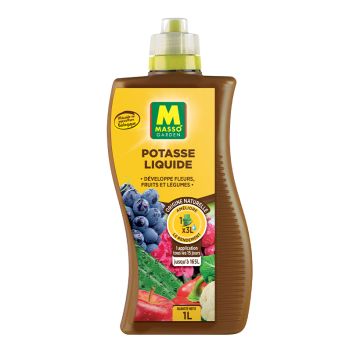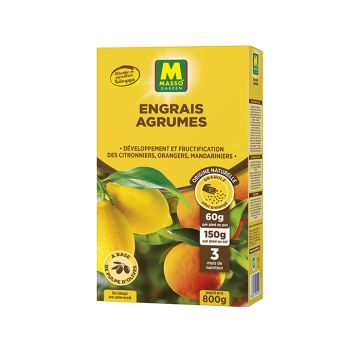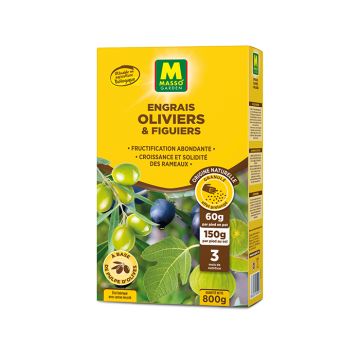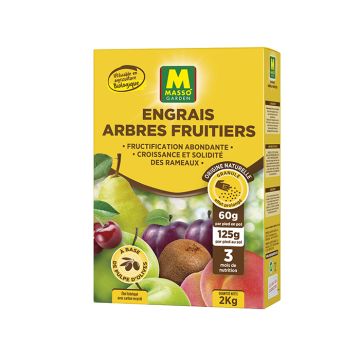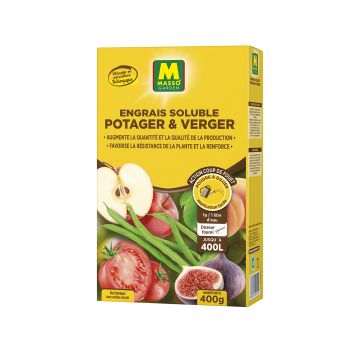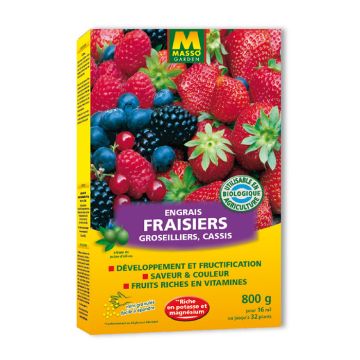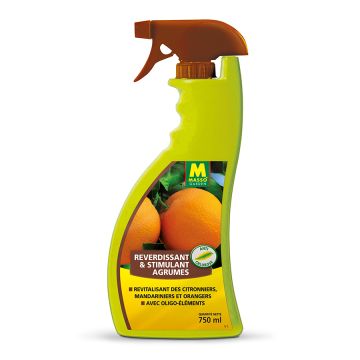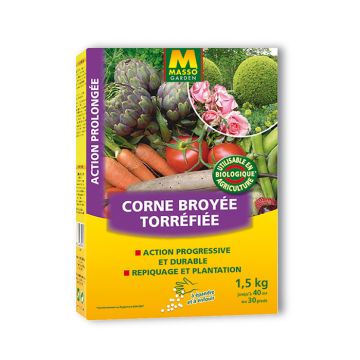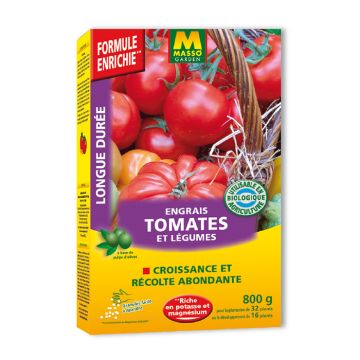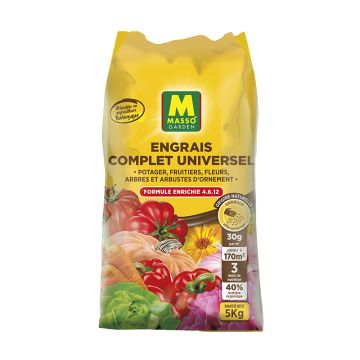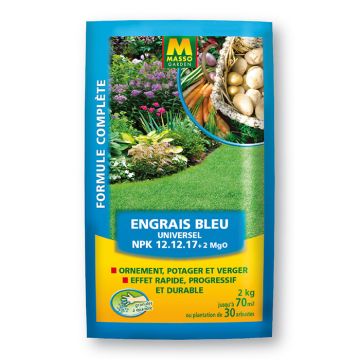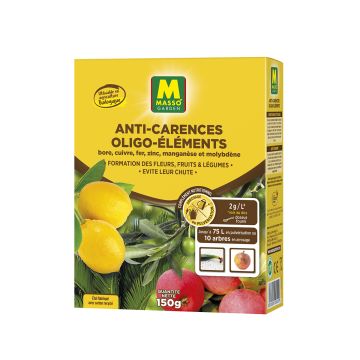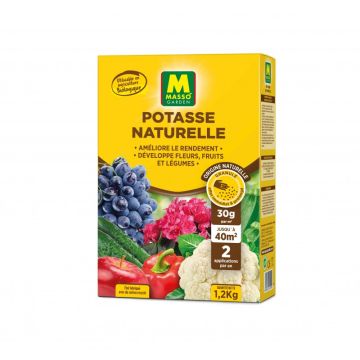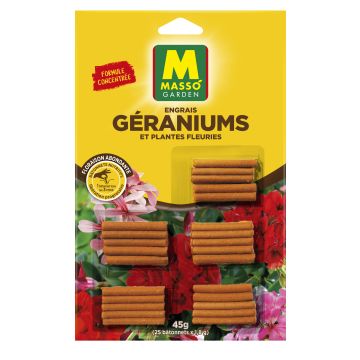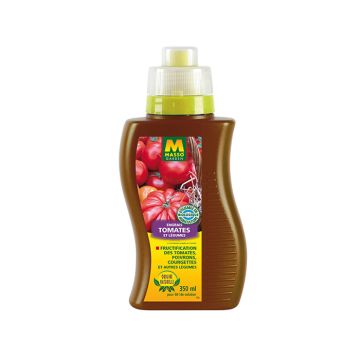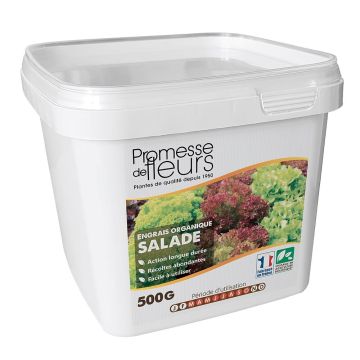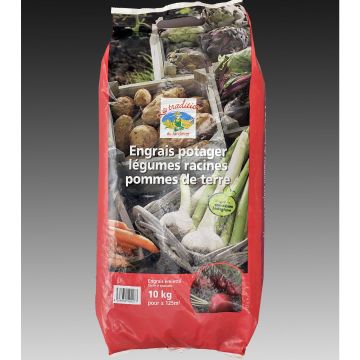Shipping country and language
Your country of residence may be:
Your country of residence is:
For a better user experience on our website, you can select:
Your shipping country:
Andorra
Austria
Belgium
Bulgaria
Canada
Chile
Croatia
Cyprus
Czechia
Denmark
Estonia
Finland
France
Germany
Greece
Hungary
Iceland
Ireland
Italy
Latvia
Lithuania
Luxembourg
Malta
Monaco
Netherlands
Poland
Portugal
Romania
Slovakia
Slovenia
Spain
Sweden
Switzerland
United Kingdom
We only deliver seed and bulb products to your country. If you add other products to your basket, they cannot be shipped.
Language:
French
German
Spanish
English
My Account
Hello
My wish lists
Plantfit
Log in / Register
Existing customer?
New customer?
Create an account to track your orders, access our customer service and, if you wish, make the most of our upcoming offers.
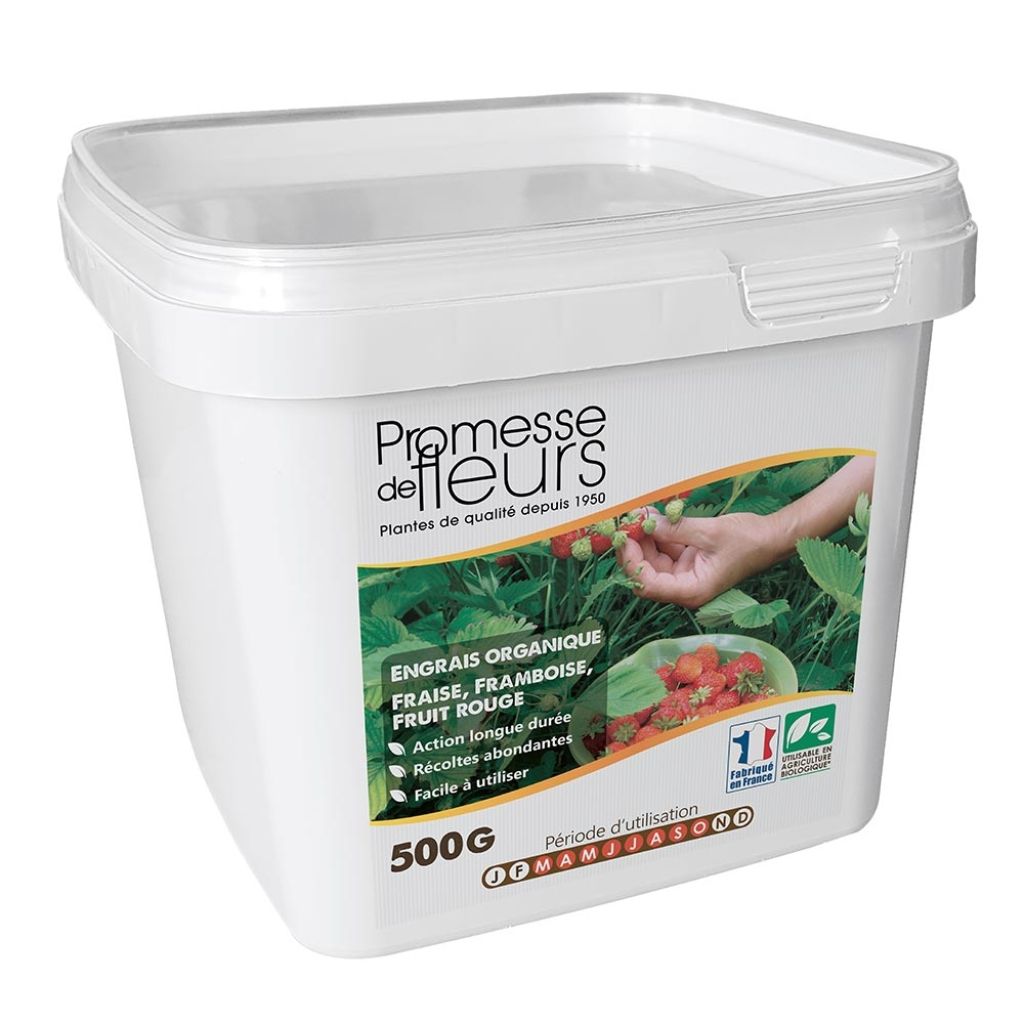

Promesse de Fleurs Fertiliser for Strawberry and Small Fruit Plants 500g box
Promesse de Fleurs Fertiliser for Strawberry and Small Fruit Plants 500g box
Order in the next for dispatch today!
Dispatch by letter from €3.90.
Delivery charge from €5.90 Oversize package delivery charge from €6.90.
More information
This item is not available in your country.
Schedule delivery date,
and select date in basket
We guarantee the quality of our plants for a full growing cycle, and will replace at our expense any plant that fails to recover under normal climatic and planting conditions.
From €5.90 for pickup delivery and €6.90 for home delivery
Express home delivery from €8.90.

The 'Promesse de Fleurs' fertiliser for strawberries and small fruits provides gentle and regular fertilisation that perfectly meets the nutritional needs of these plants. The presence of a root growth stimulator promotes the recovery and rooting of young plants. At the same time, the richness of organic matter in this fertiliser improves the soil and allows for a progressive and lasting diffusion of nutrients. The result for the plants is vigorous and harmonious development, more generous flowering, and abundant and tasty fruits. This fertiliser is environmentally friendly and can be used in organic farming.
Strawberries and all small fruit bushes benefit from a potassium-rich fertiliser, a nutrient that promotes and supports flower and fruit production. This organic fertiliser,' Promesse de Fleurs' NF U 42-001, which comes in the form of spreadable granules, is derived from the decomposition of living matter. Its formulation is NPK 4-4-8 with MgO, which means it contains:
- 4% nitrogen (N) in total, including 3.5% organic nitrogen from composted plant and animal materials (cattle-cake, fruit pulp, composted poultry manure, feather meal, hydrolysed bone and meat), released progressively and slowly, and 0.5% mineral nitrogen, directly assimilated by plants. This element contributes to developing non-reproductive above-ground parts of the plant, especially the leaves and stems.
- 4% phosphorus (P) in total, which strengthens plant resistance and contributes to root development.
- 8% potassium (K). This element is essential in root formation, flowering, and fruit development. It is indispensable for life and directly participates in cell formation and growth. Activating more than 80 enzymatic systems promotes sap circulation and transfers sugars and proteins to roots and organs such as seeds, fruits, and tubers. A well-rooted plant will better withstand drought and environmental stress.
- 1% magnesium oxide (MgO) in total, or magnesia: this element promotes the assimilation of nitrogen, phosphorus, and sulfur. It enhances the colour of flowers and the flavour of fruits and vegetables.
The role of the root growth stimulator is fundamental: it promotes the root dynamism of plants during rootin. It creates a favourable environment capable of inducing the formation of numerous highly branched roots. Plant development is thus boosted in terms of vegetation and flowering or fruiting. A plant with a well-developed root system will better withstand water scarcity and efficiently absorb nutrients present in the soil.
Usage: It is used for strawberries,f raspberries, currants, garden blackberries, blackcurrants, blueberries, hawthorn berries, and other goji berries. It is used from March to October, during the growth, flowering, and fruiting period. Before planting, spread and mix with the soil during soil preparation. During cultivation, spread and incorporate into the soil by lightly scratching and watering.
- For new planting, spread 120g/m2 before preparation and then 60g/m2 during vegetation: 180g/m2 per year.
- For established plants: three applications of 60g/m2 per year.
- Potted plants: makethree3 applications of 10g per 10litress of potting soil per year.
(One handful = 30 grams)The product is intended for leisure gardening and is usable in organic farming by EC regulation 834/2007.
Technical features

Detailed features
Tips
Tips
Other Fruit tree fertilisers
This item has not been reviewed yet - be the first to leave a review about it.
Vegetable garden fertilisers
Haven't found what you were looking for?
Hardiness is the lowest winter temperature a plant can endure without suffering serious damage or even dying. However, hardiness is affected by location (a sheltered area, such as a patio), protection (winter cover) and soil type (hardiness is improved by well-drained soil).

Photo Sharing Terms & Conditions
In order to encourage gardeners to interact and share their experiences, Promesse de fleurs offers various media enabling content to be uploaded onto its Site - in particular via the ‘Photo sharing’ module.
The User agrees to refrain from:
- Posting any content that is illegal, prejudicial, insulting, racist, inciteful to hatred, revisionist, contrary to public decency, that infringes on privacy or on the privacy rights of third parties, in particular the publicity rights of persons and goods, intellectual property rights, or the right to privacy.
- Submitting content on behalf of a third party;
- Impersonate the identity of a third party and/or publish any personal information about a third party;
In general, the User undertakes to refrain from any unethical behaviour.
All Content (in particular text, comments, files, images, photos, videos, creative works, etc.), which may be subject to property or intellectual property rights, image or other private rights, shall remain the property of the User, subject to the limited rights granted by the terms of the licence granted by Promesse de fleurs as stated below. Users are at liberty to publish or not to publish such Content on the Site, notably via the ‘Photo Sharing’ facility, and accept that this Content shall be made public and freely accessible, notably on the Internet.
Users further acknowledge, undertake to have ,and guarantee that they hold all necessary rights and permissions to publish such material on the Site, in particular with regard to the legislation in force pertaining to any privacy, property, intellectual property, image, or contractual rights, or rights of any other nature. By publishing such Content on the Site, Users acknowledge accepting full liability as publishers of the Content within the meaning of the law, and grant Promesse de fleurs, free of charge, an inclusive, worldwide licence for the said Content for the entire duration of its publication, including all reproduction, representation, up/downloading, displaying, performing, transmission, and storage rights.
Users also grant permission for their name to be linked to the Content and accept that this link may not always be made available.
By engaging in posting material, Users consent to their Content becoming automatically accessible on the Internet, in particular on other sites and/or blogs and/or web pages of the Promesse de fleurs site, including in particular social pages and the Promesse de fleurs catalogue.
Users may secure the removal of entrusted content free of charge by issuing a simple request via our contact form.
The flowering period indicated on our website applies to countries and regions located in USDA zone 8 (France, the United Kingdom, Ireland, the Netherlands, etc.)
It will vary according to where you live:
- In zones 9 to 10 (Italy, Spain, Greece, etc.), flowering will occur about 2 to 4 weeks earlier.
- In zones 6 to 7 (Germany, Poland, Slovenia, and lower mountainous regions), flowering will be delayed by 2 to 3 weeks.
- In zone 5 (Central Europe, Scandinavia), blooming will be delayed by 3 to 5 weeks.
In temperate climates, pruning of spring-flowering shrubs (forsythia, spireas, etc.) should be done just after flowering.
Pruning of summer-flowering shrubs (Indian Lilac, Perovskia, etc.) can be done in winter or spring.
In cold regions as well as with frost-sensitive plants, avoid pruning too early when severe frosts may still occur.
The planting period indicated on our website applies to countries and regions located in USDA zone 8 (France, United Kingdom, Ireland, Netherlands).
It will vary according to where you live:
- In Mediterranean zones (Marseille, Madrid, Milan, etc.), autumn and winter are the best planting periods.
- In continental zones (Strasbourg, Munich, Vienna, etc.), delay planting by 2 to 3 weeks in spring and bring it forward by 2 to 4 weeks in autumn.
- In mountainous regions (the Alps, Pyrenees, Carpathians, etc.), it is best to plant in late spring (May-June) or late summer (August-September).
The harvesting period indicated on our website applies to countries and regions in USDA zone 8 (France, England, Ireland, the Netherlands).
In colder areas (Scandinavia, Poland, Austria...) fruit and vegetable harvests are likely to be delayed by 3-4 weeks.
In warmer areas (Italy, Spain, Greece, etc.), harvesting will probably take place earlier, depending on weather conditions.
The sowing periods indicated on our website apply to countries and regions within USDA Zone 8 (France, UK, Ireland, Netherlands).
In colder areas (Scandinavia, Poland, Austria...), delay any outdoor sowing by 3-4 weeks, or sow under glass.
In warmer climes (Italy, Spain, Greece, etc.), bring outdoor sowing forward by a few weeks.
